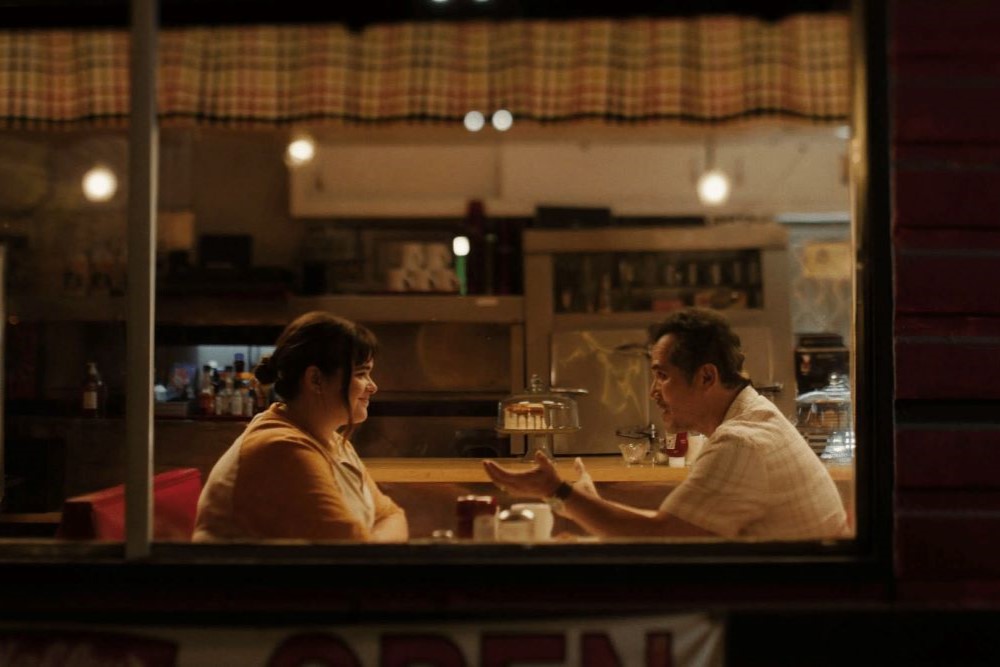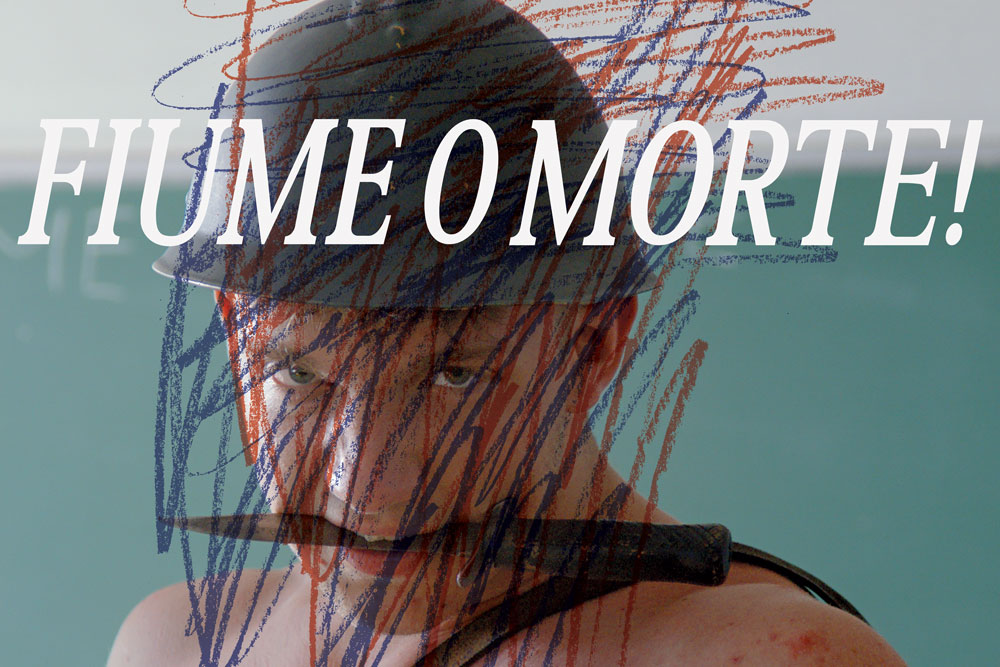
Summary
December 12, 1969 - A bomb blast at the National Bank at Piazza Fontana in Milan. 17 dead and 88 wounded. Activist and anarchist Giuseppe Pinelli was arrested without concrete evidence only to "fall out of the window" during police interrogations (death was reported as suicide). An interesting fact is that an ambulance was called before the fall itself. Whether it was premeditated murder or Pinelli was "accidentally" beaten to death, charges against police officers were dropped and the dead anarchist served a purpose.
December 12, 1970 - In the meantime, as many as eight people have been mysteriously killed in connection with the massacre. We see a series of worker struggles and union defeats at FIAT's Mirafiori plant in Turin and mass protests in Reggio Calabria. Workers feel betrayed by the PCI and all others, fascist factions like Ordino Nuovo and Black Prince Junio Valeri Borghese's Fronta Nazionale increasingly sabotage workers' initiatives. Pulcinella's secret is that the Christian Democratic government uses them to reduce the power of left-wing extremist non-parliamentary groups.
December 12, 1971 - Since the massacre in Milan, the fascist factions have committed more than 200 attacks in conjunction with major capital, the government and the military. Promotions and deaths seem to go hand in hand. The last battle cry into an armed conflict against the capitalist state (the Red Brigades were founded then) and after that silenzio. The lead years after all these futile slogans and violence ended with the preservation of neoliberal values.
Pasolini's collaboration with militant Giovanni Bonfanti and the collective of Lotta Continua (whose influential newspaper publications were a longtime contributor and financier) made a political and anthropological trip to Italy in the 1970s. Italy as the scene of a class struggle on the brink of civil war. This is also the author's latest documentary (his authorship was only confirmed in 2015, because he did not sign it in prison at the time), and is stylistically somewhere halfway between a propaganda film and a more reflective approach from Love Meetings or Notes Towards an African Orestes.
With Lotta Continua, Pasolini shared an affinity for young, unskilled, immigrant workers from the south who had long been ignored by traditionally oriented PCI. Interest in the weak and oppressed and innocence against violence are recurrent preoccupations for Pasolini, who prefers to participate directly in events than making a collage of found footage. The chronicle of the Italian society of those tumultuous years, when everything changed irrevocably, records the last roars and cries for a better world - after catharsis and purification in blood and steel, innocence is lost, and with it the hope of a better world. It followed the Berlusconization of the Italian society and equivalent processes throughout Europe and the world. Or in the words of one of the caustic protagonists of the documentary: "Step by step, but always in the same place."
S Lotta Continuom Pasolini je dijelio afinitet za mlade, nekvalificirane, imigrantske radnike s juga koje je tradicionalno orijentiran PCI dugo ignorirao. Interes za slabe i potlačene i nevinost protiv nasilja rekurentne su preokupacije Pasolinija, koji preferira direktno sudjelovanje u događanjima od kolažiranja found footagea. Kronika talijanskog društva tih burnih godina kada se sve nepovratno izmijenilo bilježi zadnje urlike i vapaje za boljim svijetom – nakon katarze i očišćenja u krvi i čeliku nevinost je nepovratno izgubljena, a s njome i nada u bolji svijet. Uslijedila je berlusconizacija talijanskog društva i ekvivalentni procesi diljem Europe i svijeta. Ili riječima jednog od kaustičnih protagonista dokumentarca: „Korak po korak, ali uvijek na istom mjestu“.
December 12, 2016 - The battle is lost, but the fight continues (lotta continua). "Fight hard and fearlessly ..."
(Dina Pokrajac)
featured
Film Mutations: Festival of Invisible Cinema XIII.
Cinemaclash! Film+Power
Film Mutations: Festival of Invisible Cinema XIII. subtitled Cinemaclash! Film+Power is being held in Art-kino → more
06.-09.02.2020.
Film Is More Than Film
Film ist mehr als Film, Austria, 1996., director: Gustav Deutsch, feature film
Border
Border, France / United Kingdom, 2004., director: Laura Waddington, documentary
Pasolini's Anger. Hypotheses for the Reconstruction of the Original Version of the Film
La rabbia di Pasolini. Ipotesi di ricostruzione della versione originale del film, Italy, 1963.-2008., director: Pier Paolo Pasolini, Giuseppe Bertolucci, documentary
6/64: Mom and Dad (An Otto Mühl Happening)
6/64 Mama und Papa (Materialaktion Otto Mühl), Austria, 1964., director: Kurt Kren, eksperimentalni
Film or Power
Film oder Macht, West Germany, 1970., director: Vlado Kristl, feature film
7/64: Leda and the Swan
7/64 Leda und der Schwan, Austria, 1964., director: Kurt Kren, feature film
Liberty
Liberté, France / Portugal / Spain / Germany, 2019., director: Albert Serra, feature film
Actors: Submission and Pleasure: Opening of the Festival
Actors: Submission and Pleasure,
Cinema Conversation
Cinema Conversation,
Film is. 1-6
Film ist. 1-6, director: Gustav Deutsch,
In the Name of the Law
Enligt lag, Sweden, 1958., director: Peter Weiss, Hans Nordenström, documentary
Power and Rebellion
Albert Serra - Selection of films,
Tommaso
Italy / United Kingdom / United States / Greece, 2019., director: Abel Ferrara, feature film
Symposium - Power of Cinemaclash
Symposium - Power of Cinemaclash,
Women's Quarter
Qaleh, Iran, 1966., director: Kamran Shirdel, documentary
Tehran Is the Capital of Iran
Teheran, Payetakht-e Iran Ast, Iran, 1966., director: Kamran Shirdel, documentary
The Incomparable of The Non-comparable
Lo incomparable de lo no comparable, France, 2019., director: Paul Grivas, feature film
Jean-Luc Godard: Initiation into the revolutionary film
Initiation au cinéma [révolutionnaire], France, 1969., director: Jean-Paul Török, documentary
1968: A Blind Archive
1968: A Blind Archive, Mexico, 2014., director: Bani Khoshnoudi, documentary
Visual Riots
Visual Riots,
Socialism
Film Socialisme, Switzerland / France, 2010., director: Jean-Luc Godard, feature film
Film Catastrophe
Film Catastrophe, France, 2018., director: Paul Grivas, documentary
Film/Speaks/Many/Languages
Film/Spricht/Viele/Sprachen, Austria, 1995., director: Gustav Deutsch, documentary
The Hills of Marlik
Tappeha-ye Marlik, Iran, 1963., director: Ebrahim Golestan, documentary
Brick and Mirror
Khesht o ayeneh, Iran, 1965., director: Ebrahim Golestan, feature film
El Grito
El Grito, Mexico, 1968.-1970., director: Leobardo López Aretche, documentary
Visual Riots
Nicole Brenez,
9/64 O Christmas Tree
9/64 O Tannenbaum, Austria, 1964., director: Kurt Kren, feature film









































